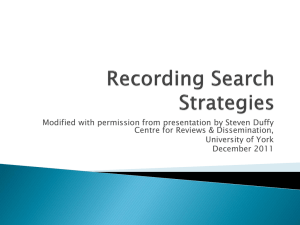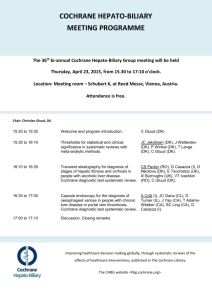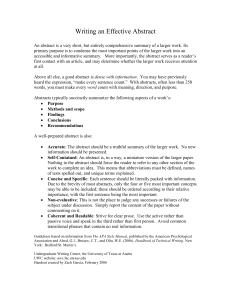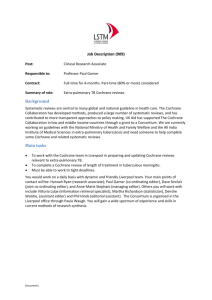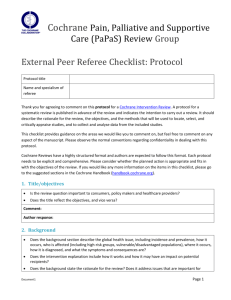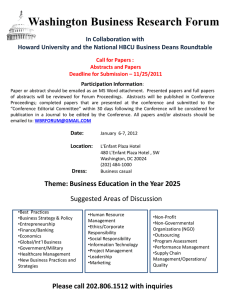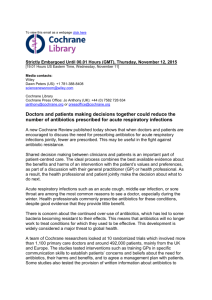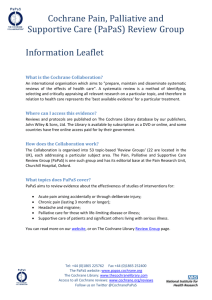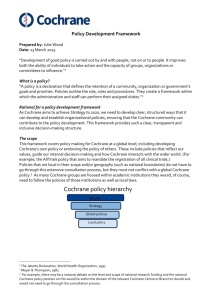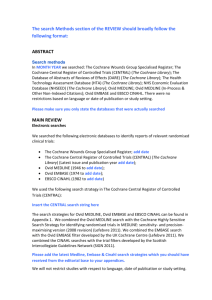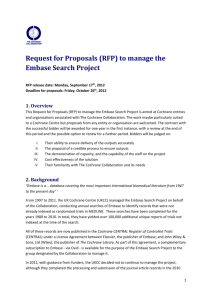Spotlight on Cochrane Brazil`s Portuguese translation project
advertisement
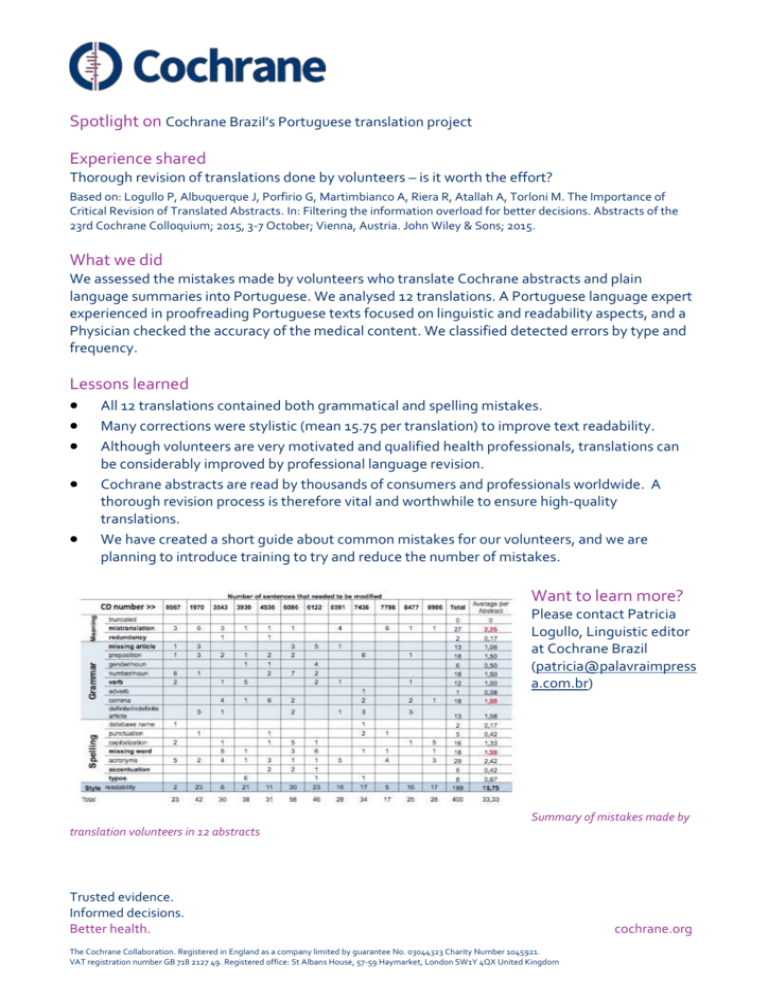
Spotlight on Cochrane Brazil’s Portuguese translation project Experience shared Thorough revision of translations done by volunteers – is it worth the effort? Based on: Logullo P, Albuquerque J, Porfirio G, Martimbianco A, Riera R, Atallah A, Torloni M. The Importance of Critical Revision of Translated Abstracts. In: Filtering the information overload for better decisions. Abstracts of the 23rd Cochrane Colloquium; 2015, 3-7 October; Vienna, Austria. John Wiley & Sons; 2015. What we did We assessed the mistakes made by volunteers who translate Cochrane abstracts and plain language summaries into Portuguese. We analysed 12 translations. A Portuguese language expert experienced in proofreading Portuguese texts focused on linguistic and readability aspects, and a Physician checked the accuracy of the medical content. We classified detected errors by type and frequency. Lessons learned All 12 translations contained both grammatical and spelling mistakes. Many corrections were stylistic (mean 15.75 per translation) to improve text readability. Although volunteers are very motivated and qualified health professionals, translations can be considerably improved by professional language revision. Cochrane abstracts are read by thousands of consumers and professionals worldwide. A thorough revision process is therefore vital and worthwhile to ensure high-quality translations. We have created a short guide about common mistakes for our volunteers, and we are planning to introduce training to try and reduce the number of mistakes. Want to learn more? Please contact Patricia Logullo, Linguistic editor at Cochrane Brazil (patricia@palavraimpress a.com.br) Summary of mistakes made by translation volunteers in 12 abstracts Trusted evidence. Informed decisions. Better health. The Cochrane Collaboration. Registered in England as a company limited by guarantee No. 03044323 Charity Number 1045921. VAT registration number GB 718 2127 49. Registered office: St Albans House, 57-59 Haymarket, London SW1Y 4QX United Kingdom cochrane.org
